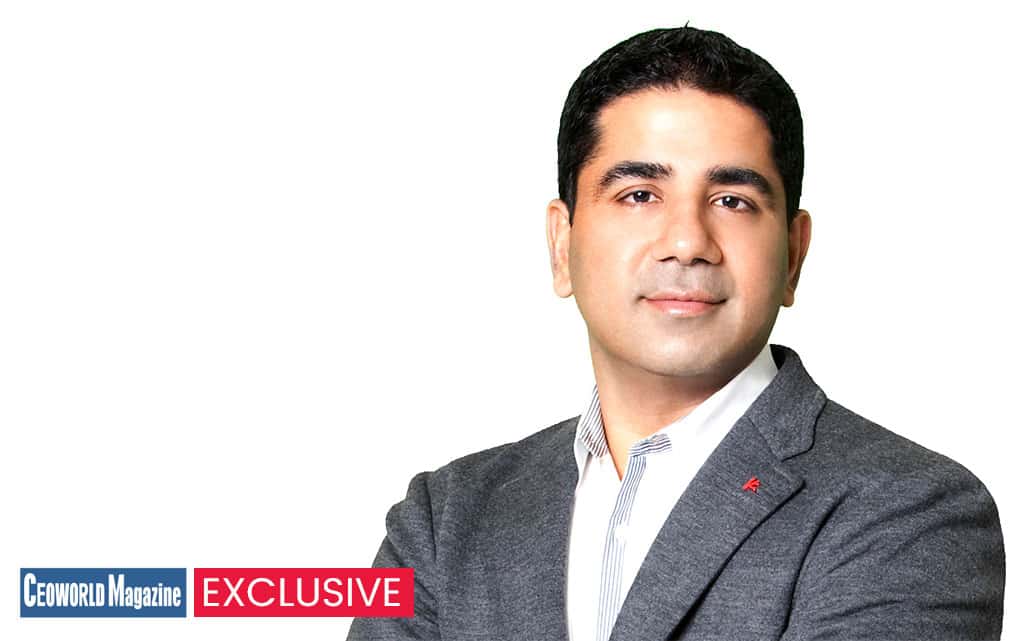CEO Spotlight: Q&A With Nitin Khanna: Investor, Entrepreneur, & MergerTech CEO

Innovation, creativity, philanthropy, and the entrepreneurial spirit define the life and achievements of former MergerTech CEO Nitin Khanna. Khanna sold his first company, Saber Software, for four times its market value in 2008; he now manages and invests in businesses across many industries.
What led you to become an entrepreneur?
My family was very entrepreneurial and I grew up all around the business. When I was 17, I came to the US and got my undergraduate and master’s degrees in industrial engineering from Purdue. I was in the Ph.D. program for robotics when I decided that I wanted to go work for a living.
My brother came to the US in 1999. We started Saber Software and grew it over the next 10 years, becoming best known for our election software. In the year 2000, after the presidential election and the Florida recount, the federal government passed a law called the Help America Vote Act, which mandated that every state modernize its election systems 2006.
We were already doing this in Oregon, and Oregon was the first state in the country to issue a procurement for our software. We later won Missouri, New York, and 21 more states.
Next, we created other government to citizen software. We added systems for the DMV, child care, child support, and anywhere else where citizens interacted with the government
After I sold Saber, I began doing a lot of investing to help more companies in Portland. In 2009 I began to build up MergerTech, and we really focused on helping entrepreneurs build mobile startups.
You’ve worked in a number of companies. What was your role like in each of these companies? How were you involved in everyday growth and operations?
I’m a revenue and growth person. More importantly, I think the key role I play in each company is setting its strategy, vision, mission, culture, and how we view people as a whole. I truly believe that the only real critical differentiator between one company and another is its people.
I’ve always focused a tremendous amount of my time and energy into this. At Saber and MergerTech, my brother focused on operations while I focused on sales. He was kind of the yin to my yang. I’ve become more operations-minded over the years, but my core instinct is strategy, growth, and people.
What helps you form strategies for the very different entities that you’ve helped grow?
I approach a business first and foremost with the ability to get things done in mind, and I’m always thinking about this as we hire people.
If I can attract the absolute best talent, then we’re going to win. Furthermore, company culture is extremely important to us. The folks who stay at the companies I run are all like-minded, and your values across companies should only really change as you discover new things about yourself.
I want people to be excited about the vision and the mission. Once you have a team of talented people who are all rowing in the same direction, you can work toward an end goal.
How do you help people stay productive?
One of my favorite things to tell people when I’m coaching them is that every great executive has almost unlimited free time – and busy people can learn to build that time.
You have more free time when you hire the best people, align them with your culture and your expectations, and point them in the right direction. For me, this is really important, especially since I have four kids. More than anything else, I manage by time by having great people help me manage it.
Do you have a set of time management principles you adhere to or is it more about prioritizing the important things in life?
I am extremely tight with my time. I don’t really engage in things that are not productive. I’m really focused on evaluating what does or doesn’t work, so it really begins with having a very keen focus on time. I follow the zero inbox philosophy and just stay on top of things.
I’m very focused. If a meeting can be done in five minutes, there is no reason to take 15. I have learned through experience how to tell what needs to happen first.
What is one of those big, long-term goals you’re hoping to achieve in your career?
To build a company that has lasting power. Even though I left Cura Cannabis Solutions, I still have high hopes for the company. I want to be able to say decades from now that they built the Coca-Cola of cannabis.
What are a few books that you’ve read or a website to keep up with that you would recommend to other people?
Winning by Jack Welch.
Have you read?
The cheapest (and most expensive) cities to rent a car in 2020.
The most (and least) driver-friendly states in the U.S., 2020.
Diversity Essential to the Success of Corporate America.
What Do Human-machine Partnerships Mean For Workers?
3 Things To Think About Before Starting a Business.
Bring the best of the CEOWORLD magazine's global journalism to audiences in the United States and around the world. - Add CEOWORLD magazine to your Google News feed.
Follow CEOWORLD magazine headlines on: Google News, LinkedIn, Twitter, and Facebook.
Copyright 2025 The CEOWORLD magazine. All rights reserved. This material (and any extract from it) must not be copied, redistributed or placed on any website, without CEOWORLD magazine' prior written consent. For media queries, please contact: info@ceoworld.biz








